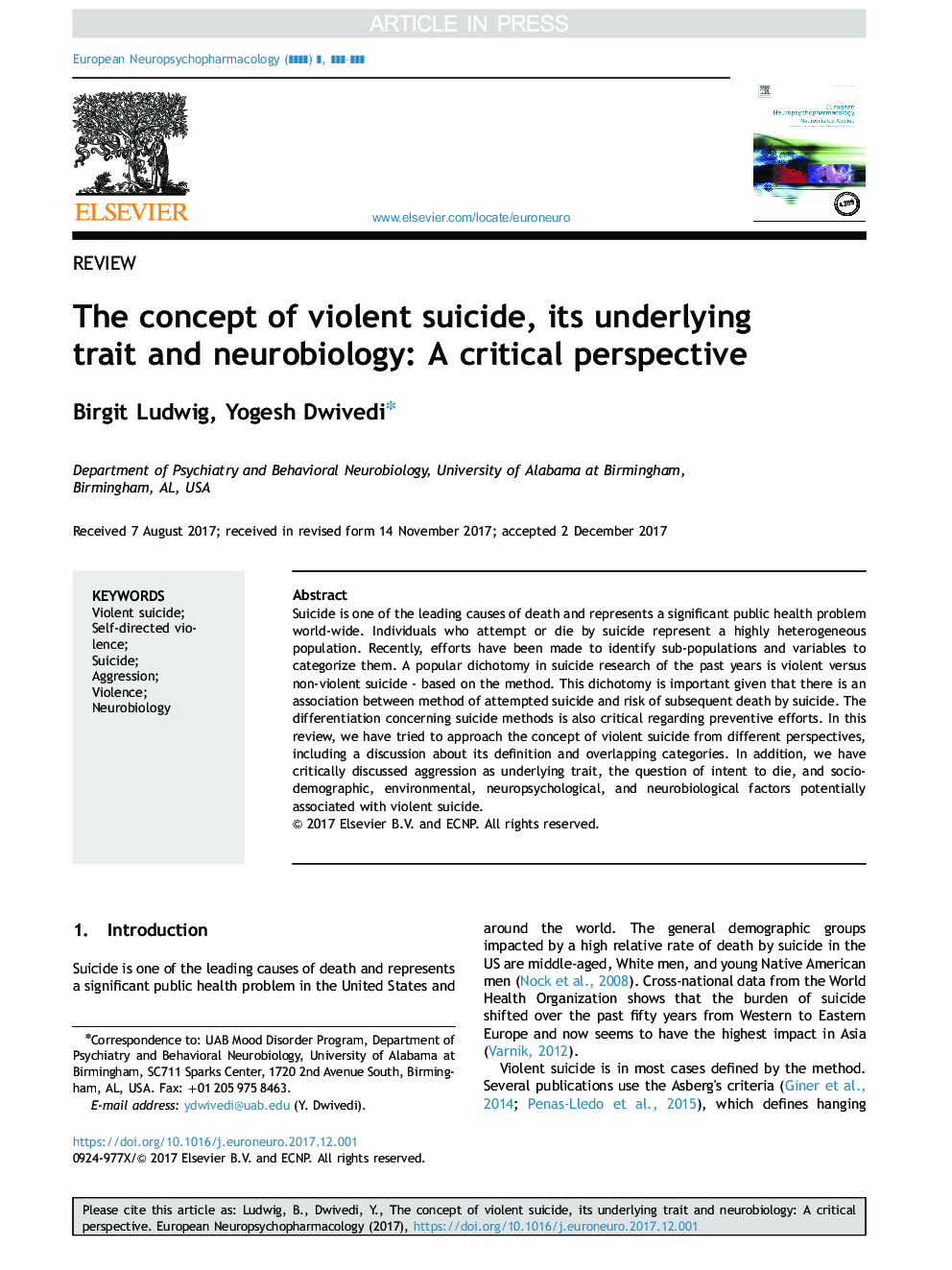| Article ID | Journal | Published Year | Pages | File Type |
|---|---|---|---|---|
| 6790851 | European Neuropsychopharmacology | 2018 | 9 Pages |
Abstract
Suicide is one of the leading causes of death and represents a significant public health problem world-wide. Individuals who attempt or die by suicide represent a highly heterogeneous population. Recently, efforts have been made to identify sub-populations and variables to categorize them. A popular dichotomy in suicide research of the past years is violent versus non-violent suicide - based on the method. This dichotomy is important given that there is an association between method of attempted suicide and risk of subsequent death by suicide. The differentiation concerning suicide methods is also critical regarding preventive efforts. In this review, we have tried to approach the concept of violent suicide from different perspectives, including a discussion about its definition and overlapping categories. In addition, we have critically discussed aggression as underlying trait, the question of intent to die, and sociodemographic, environmental, neuropsychological, and neurobiological factors potentially associated with violent suicide.
Related Topics
Life Sciences
Neuroscience
Biological Psychiatry
Authors
Birgit Ludwig, Yogesh Dwivedi,
